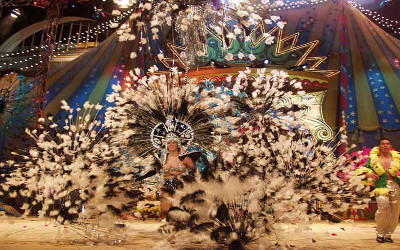Sephardic Spanish were Jewish people who lived in Spain for centuries before 1492. They held important position in the Government and other important institutions in the country. Moreover, it is said that most of the counselors of Alfonso X El Sabio (The Wise) were Sephardi.
For them, Spain is Sepharad, a promised land in the Bible (Obad. 1:20). When they arrived to Spain, the country was really in a golden period of its time, being a source of culture and a bridge to new knowledges coming from the Arab world, thanks to the Spanish translator monks.


In 1492, Spain was in a period of time when it was still building itself as a country unified under only one kingdom. Before that, more than 2 had been ruling different parts of the territory. At around that time, the Catholic Kings became the Kingdom of Spain, and therefore they needed to reorganize some aspects of the Kingdom. Moreover, they were concerned about Sephardic people, because of their economic and social power, while not being Catholic... Therefore, they let them choose to convert to Catholicism, or leave the country. Although many people (really or just admittedly) converted and remained in Spain, some of them decided to leave the country... However, they left it full of sadness, because of their deep roots with Spanish culture and people.


It needs to be said that these event is not exclusive of Spain. It is the only one that happened in Spain and, actually, it is one of the last ones that happened in Europe. Before this one, England and France, among other countries, had done it in a forceful way to Jewish people for the same or similar reasons.
After hundreds of years, these amazing people kept their Spanish roots and carried Spanish language with them. However, it was separated from Spain before it made huge changes and became the current Spanish.
For that reason, "Judeoespañol", or Sephardic Spanish, is more similar to the Middle Age Spanish than the current one. In the next post, I will talk about this language. I am amazed to listen to it, it is a language treasure and, in my opinion, its people is very creditable.
Some references to learn more (please be aware these are long articles):
- Sephardic Jews
- Sephardic laws and customs
- History of the Jews in Spain
¡Gracias y hasta pronto!
For them, Spain is Sepharad, a promised land in the Bible (Obad. 1:20). When they arrived to Spain, the country was really in a golden period of its time, being a source of culture and a bridge to new knowledges coming from the Arab world, thanks to the Spanish translator monks.


In 1492, Spain was in a period of time when it was still building itself as a country unified under only one kingdom. Before that, more than 2 had been ruling different parts of the territory. At around that time, the Catholic Kings became the Kingdom of Spain, and therefore they needed to reorganize some aspects of the Kingdom. Moreover, they were concerned about Sephardic people, because of their economic and social power, while not being Catholic... Therefore, they let them choose to convert to Catholicism, or leave the country. Although many people (really or just admittedly) converted and remained in Spain, some of them decided to leave the country... However, they left it full of sadness, because of their deep roots with Spanish culture and people.


It needs to be said that these event is not exclusive of Spain. It is the only one that happened in Spain and, actually, it is one of the last ones that happened in Europe. Before this one, England and France, among other countries, had done it in a forceful way to Jewish people for the same or similar reasons.
After hundreds of years, these amazing people kept their Spanish roots and carried Spanish language with them. However, it was separated from Spain before it made huge changes and became the current Spanish.
For that reason, "Judeoespañol", or Sephardic Spanish, is more similar to the Middle Age Spanish than the current one. In the next post, I will talk about this language. I am amazed to listen to it, it is a language treasure and, in my opinion, its people is very creditable.
Some references to learn more (please be aware these are long articles):
- Sephardic Jews
- Sephardic laws and customs
- History of the Jews in Spain
¡Gracias y hasta pronto!




















